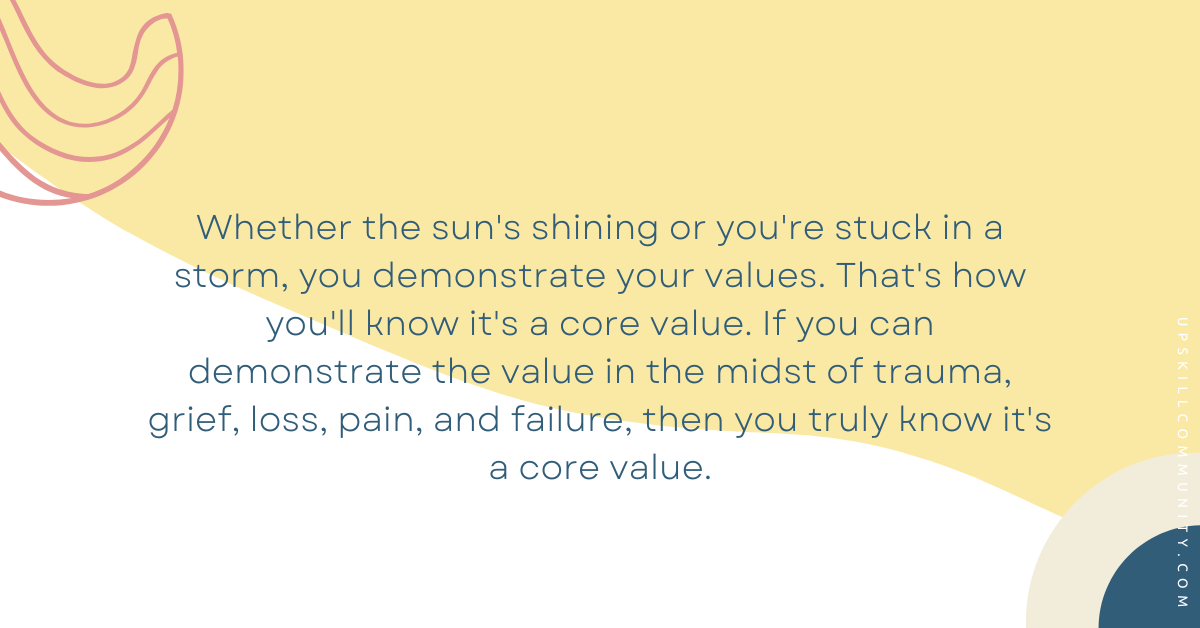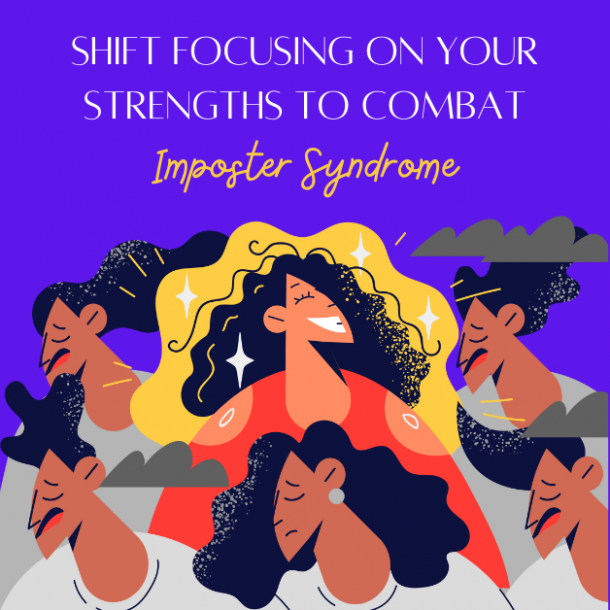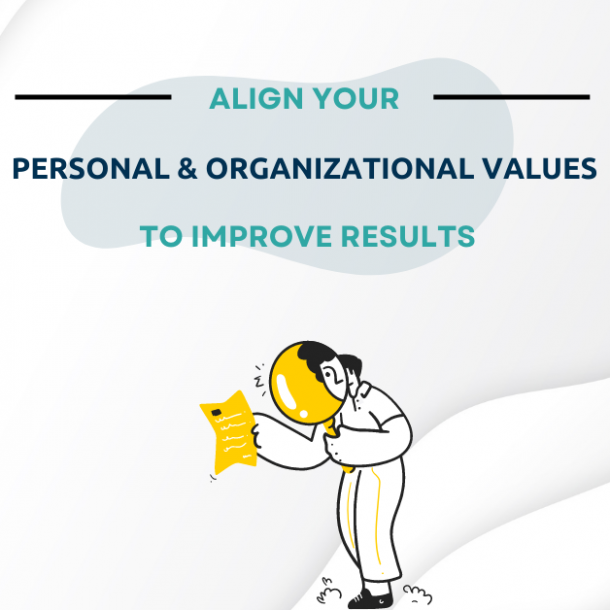
UpSkill: Build a sustainable values foundation for your life
Whatever you think, say, decide or do in life is based on your values.
Our values are the things we believe deeply. They affect how we live and work with others, how we treat others and how we allow ourselves to be treated by others. They also impact the quality of leaders we can become, and the quality of outcomes we will be able to get from our people.
Values are the fingerprint that show up on everything we do in our work, and in our world. They are really important and in this blog post I want to dive a little bit more into a discussion of our values.
I want to talk about our core values: the set of values that define who we are, and that help others be able to predict what we will think, say and do in any given situation.
These values define the core of who we are.
The “V” in Values stands for your vision. It suggests that you verify your vision and the values required to execute and maintain your vision, and your goals along the way.
Imagine you are building a house from scratch. You will be thinking about the design, how many features, how you will enjoy it, how you will use it. But do you ever stop to think about the kind of foundation that is necessary for the house to be safe for you to live in?
That’s pretty much what happens when we think about our vision. We think about what we want to achieve, what it will be like, what the benefits will be, what we will be doing.
Rarely do we think about the values that are important to set the foundation for this vision and for our goals to be cement and sustainable.
Step 1. Make sure you are clear on your vision and the goals you need to achieve along the way.
Step 2. Define your values. Think about how you’ll need to conduct yourself in order for that vision to be realized, and in order for you to sustain it.
Now that you’ve identified your values, scrutinize them. Take a look at the values. How does it come to be that they are the values you’ve selected? Why these values? Where do they come from?
Are these values really important to me, or have they been imposed on me? Have I been conditioned to have them? Or have I actually stopped and really thought about the values that are important to me based on my needs and goals.
Remember, when you build your house, the foundation on which you build it is really critical. If you build it on a shaky foundation, the house is at risk.
Similarly, when you set your vision and goals, you need to make sure that you have a strong values foundation that can help you achieve your dreams, and make them sustainable.
A poor values foundation puts your vision at risk. Ask people who know you well, and who you trust, to comment on what your values are.
Take your time to analyze the feedback. What values are there?
What surprised you?
Are there any values that are important to you that no one identified?
Were there values that you believe are important to you and most people identified?
Take a look at the list. If you ended up with nobody identifying values that were important to you, this is a time for you to go back and reflect and think about:
What are my words, behaviours, decisions saying about me and my values?
How can I modify what I say and what I do to align with my values?
If no one is noticing you have a value, it is probably not that important to you. You need to demonstrate your values.
If people are noticing the values that are important to you, then that is a start. Your close friends recognize your values. Do people at work, at school, in your community recognize them?
I want to share three keys about your core values today:
1. Core values can’t be simply stated. They must be demonstrated.
2. Core values impact how we think, how we make decisions and how we behave. As a result the evidence of core values is noticeable by others. If you are asking others for feedback on your values, and they have not noticed, it’s an opportunity for us to really think about what aspects of our thinking and decision-making should we be tightening up. What should we be modifying to be better aligned with the values we say we hold dear?

That has to be an ongoing process. As we continue to do more we have opportunities to tighten this. We may shift off-track but feedback is essential to making sure we continuously demonstrate our core values.
Keep expanding your circle of feedback until you notice patterns in what people are saying about your values. Compare their feedback to your own perception of your values.
Core values are not easy to live by. They can be painful and uncomfortable.
When we are committed to these core values, we will live by them no matter what displeasure or difficulty they cause.
When there’s sunshine, you demonstrate your values. When there’s rain, you demonstrate your values.
That’s how you know this is a core value. If you can demonstrate the value in the midst of trauma, grief, loss, pain, failure, then you truly know it’s a core value.




